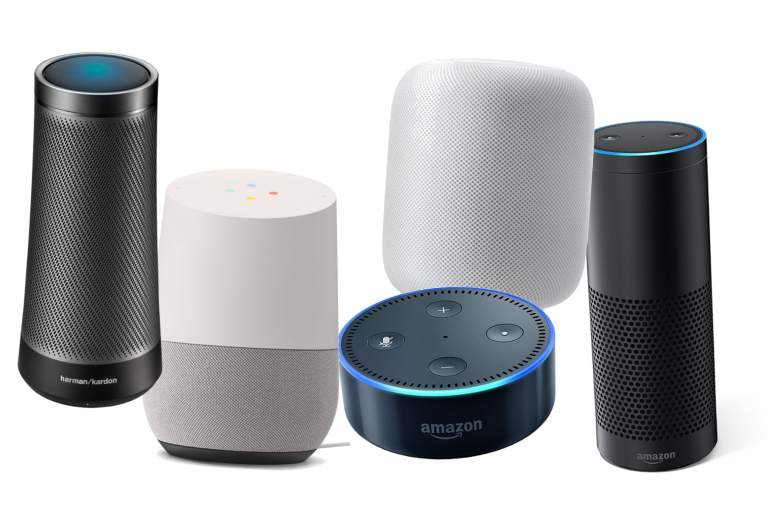
In a previous blog post, we talked about privacy as it relates to fitness wearable devices. To continue on the privacy vein, let’s examine smart speakers like Google Home, Alexa, and Siri. If you use any of these devices, you know the convenience associated with voice commands. Need the time? Alexa has it. Want to know some obscure movie fact? Ask Siri. Need to buy paper towels? Tell Google Home. Easy peasy, right? In today’s busy world of work, events, and to do lists, these devices lend a helpful hand, but at the price of consumer privacy.
Recently, both Google and Amazon filed patents to allow even broader abilities to listen in on consumer lives. Rather than waiting for a wake command as the speakers do now, the device would always be on and listening for keywords, but what is it doing with that information? According to both companies, the information would be used to target advertising based on the collected data. Say, you’re sitting around the dinner table discussing your next family vacation and then Alexa starts to recite travel deals to your target destination? How about Google Home listening to you discuss your medical issue with a friend and then offering related prescription ads? What about recognizing your mood, or an oncoming cold based on a sneeze, or an argument with your spouse? Google Home could even suggest parenting tactics based on its monitoring of your family interactions. You should spend more time with Susie, Google says. Do you want all of that in the cloud for advertisers to mill through? Is this level of technology cool or creepy?
While these assistants can be a source of convenience, we’d be remiss not to consider the potential consequences. Could information collected from smart speakers be used in a court of law? Are they discoverable? Could anything obtained be used for a conviction? Technology often moves faster than the law, but the law is catching up. Consider the Arkansas murder case where investigators wanted to use information gathered by Amazon’s smart speaker, Echo belonging to the suspect. Amazon jumped in citing First Amendment protections, an important step in setting a precedent for how this technology could be handled in the future. The suspect ended up granting permission for the data to be collected, but in future cases, consent and rights will need heavy consideration. For an innocent person accused of a crime or the unfortunate victim, the smoking gun, in this case, could be a home assistant device. But take a moment to consider the flip side. Could a conversation taken out of context lead to suspicion in the event something goes afoul, making it difficult to defend oneself? Do you really want your casual conversations used against you in a court of law?
As with much of current technology, consumers need to weigh the pros and cons of adopting smart devices. You must ask yourself the question is giving the device full access to your life, habits, interests, and vices worth the convenience? Where is the line and once we cross it, can we ever go back?


